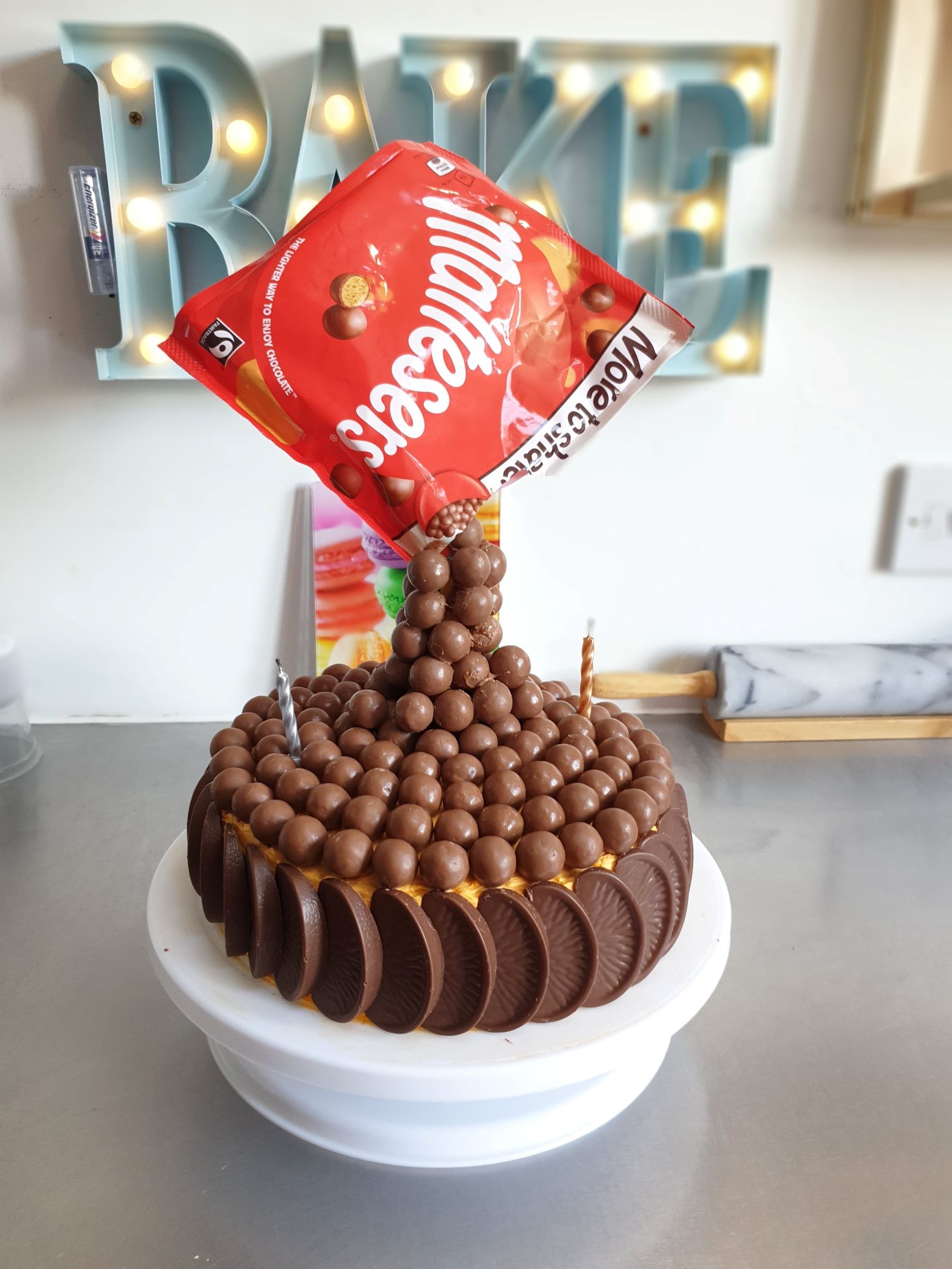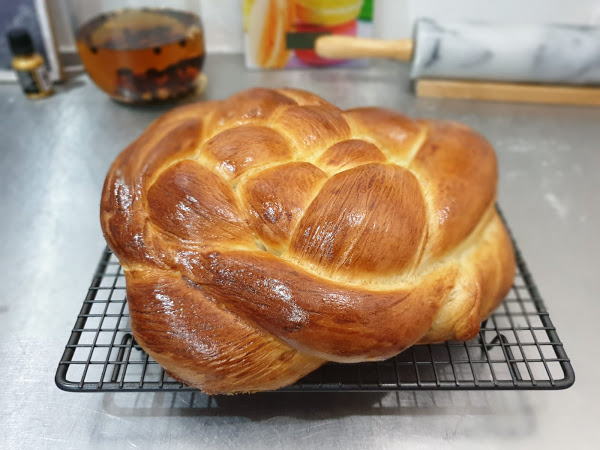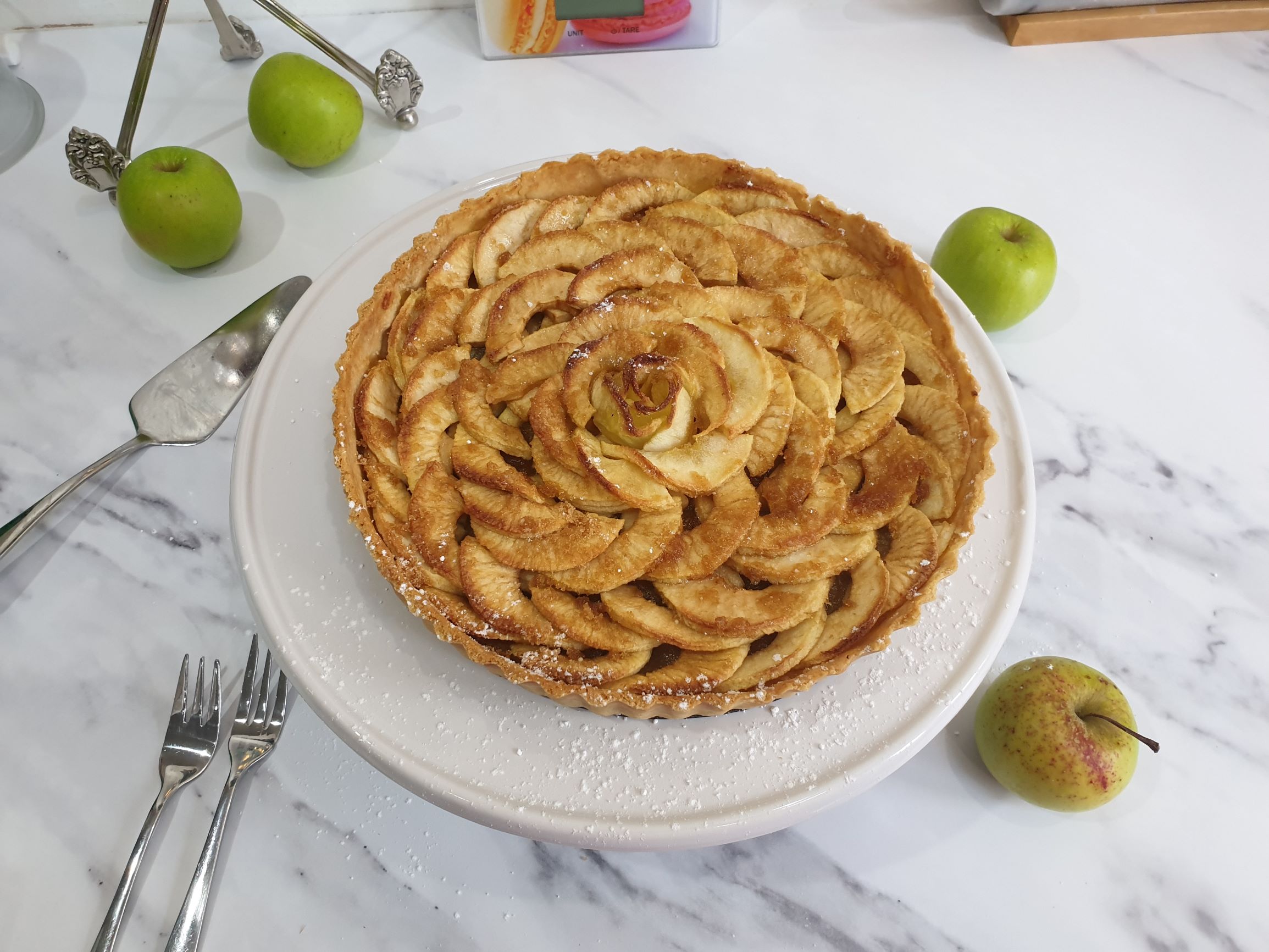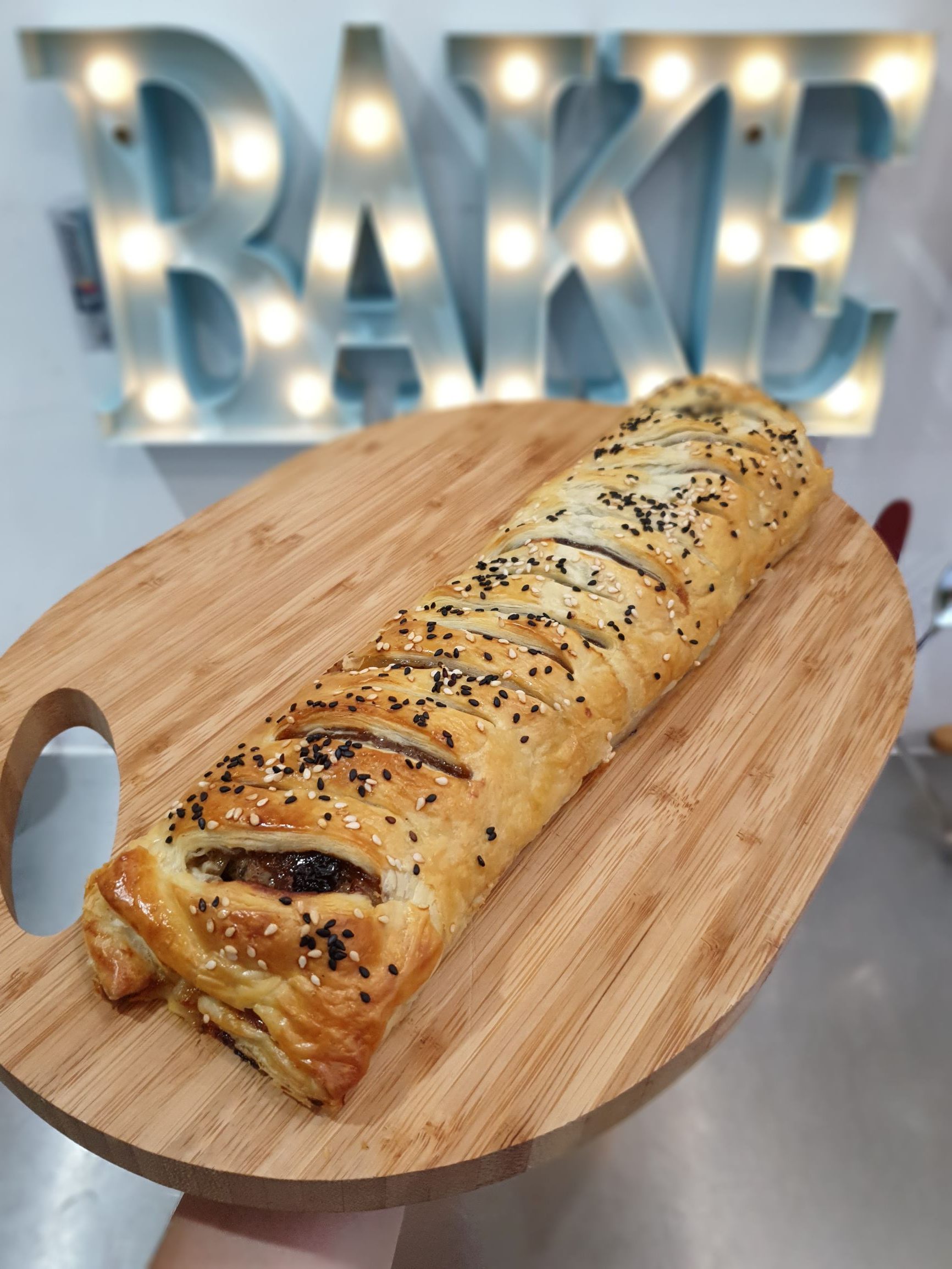The scene is set: a broom on the wall, bowls filled with different coloured powders. One thing stands out: a candle. Surely a vital hint, but what purpose does it serve? A puzzled onlooker examines her instructions, perplexed. Crucial words are missing from the clues. Another lights a match, heats the paper, magically revealing the missing words. It all starts to make sense.
An escape room? An episode of Poirot? No, it’s just another technical challenge on the French Bake Off! The bakers on Le Meilleur Pâtissier have to contend with a recipe partially written in lemon juice, i.e. invisible ink. For those who manage to crack the code, success is a possibility. For the others, not so much. A simple levitating galaxy cake is on this week’s menu. Well, it is Magic week after all!
One baker’s recipe catches fire. And another’s. An unfortunate third loses his entire recipe to the flames. Tensions are running high and it’s only week 11!
This is one of the many reasons I’m hooked on Le Meilleur Pâtissier. Although very similar in format to the GBBO, things are a oui bit different and I’m here to tell you all about it.

Le Meilleur Pâtissier
For starters, episodes are an epic two hours long, so sit back, relax and grab some popcorn because you’re in for a treat.
The first major difference is that France distinguishes between the skills of pâtisserie (cakes, entremets, sweet pastries and tarts) and boulangerie (bread, savoury pastries, viennoiserie), with bakes that would typically be found in an artisan bakery being reserved for an entirely separate programme (La Meilleure Boulangerie de France – also worth a watch). This show focuses on patisserie, which is a significant difference when we think about how versatile British bakers have to be, perfecting everything from pastry, bread and cake to patisserie, viennoiserie and chocolate. It’s given me a healthy respect for our GBBO bakers.
Themed weeks
Le Meilleur Pâtissier doesn’t have ‘bread week’ and ‘pastry week’, but weeks based on different themes, such as camping, skiing and magic. Bakers arrive at a tent enthusiastically decorated and adorned with props to add to the atmosphere. As the show spans Halloween, they always make an effort for that to be a particularly gruesomely themed week, such as hell, monsters or the seven deadly sins. Expect to see blood, gore and all things not for the faint-hearted. I have definitely seen a fair few eyeballs and severed arms over the last few years!
Star baker and winners
France’s bake off sees contestants compete, not only for a trophy, but for a book deal, with winners launching their own recipe book. At the final, there are posters on display showing bakers what their book cover could look like were they to win. No pressure!
Le Meilleur Patissier’s answer to the star baker accolade is to win le tablier bleu, the blue apron. The star baker dons the apron the following week and the pressure is on to defend their title and garder le tablier (keep the apron). But that’s not always the only prize. France likes to mix things up. This year during chocolate week, the star baker was also treated to a tour of a chocolate factory!
In contrast to the GBBO, after the signature challenge (la révisite) the judges name up to three bakers who have successfully executed the task, so bakers have an idea of how they fare compared with the others. The judges also single out those at the bottom of the pile, so they know to pull their socks up.

Judges
Paul Hollywood and Prue Leith’s French opposite numbers are Cyril Lygnac and Mercotte, two renowned bakers who happen to be married. Whichever judge sets the technical challenge bakes their own interpretation for us to admire. An additional well-known pastry chef is also invited along for the showstopper to help with the judging and offer some tips.
The French judges aren’t there to strike fear into the candidates. Instead, it’s not uncommon for them to offer advice and even suggest that bakers change their recipe slightly. One candidate wants to add gelatine to ensure a tart topping sets, but the judges think that combining pectin and gelatine will make it too rubbery, and recommend just adding lemon juice near the end. If a bake sounds far too sweet, the judges will air their concerns and suggest balancing it out with some fresh fruit.
Defining delicious
It’s interesting to notice what is considered to be a successful bake. You don’t want to be accused of making something ‘trop sucré’ or too sweet. Likewise, textures that are too stodgy are frowned upon. The judges are looking for bakes that are well-balanced, refreshing and offer a variety of textures. Fresh fruit is a highly valued commodity. And why not, when you can claim it as one of your five a day?!

Technical challenges
Le Meilleur Pâtissier certainly keeps you on your toes, especially during the technical challenge. On at least two occasions I’ve noted the judges completely making up a cake. And you thought a cornucopia was tough! In one of last year’s episodes, bakers worked in couples to perform the technical challenge and on one occasion this year the whole group was split into two teams for all three tasks, with the winner and leaver being chosen from the winning and losing teams, respectively. You never know what’s going to happen next, but you do know that it will be light-hearted and fun. All in all the programme is wholeheartedly enjoyable and a real pleasure to watch.
That not enough drama for you? Let’s take a trip to Chile, shall we?
Chile – El Gran Pastelero / Bake Off Chile
Over in Chile, you could be forgiven for thinking you were watching a telenovela. There are three judges who can only be described as utterly brutal. Purposeful, dramatic music is used to build tension and enhance tragedy, which can make for some uncomfortable watching.
Bakers are set just two challenges: a technical and a creative one based on some loose instructions. Helpfully, they are shown what the technical should look like. It’s dessert week and the task at hand is a Tiramisu Charlotte, a fusion of Italian and French baking, wrapped in lady fingers.
This week noone has done well and the technical challenge winner’s ego is well and truly tempered as he is told that he is not the best, just the least worst. All participants are chastised for the sponge to cream ratio being far too high and for there being no balance between the layers. The result of a thicker sponge is that not enough coffee has soaked into it. The fact that contestants were each provided with their own coffee machine for this very purpose means the judges feel particularly offended by this. It is made clear that none of the bakes were dinner party worthy. Contestants are told to use their common sense and asked whether they have even tried tiramisu at all. Burn.
For the creative challenge (if you can stomach watching on), bakers are given loose instructions to make two desserts. One presents rice pudding in a glass dessert bowl. The judge’s eyes narrow. He swivels it around. It doesn’t move. The camera zooms in. The music starts. We all know this isn’t good. He flips the rice pudding upside down, slamming it onto the table. The onlookers gasp as the contents don’t move and remain firmly glued to the bottom of the bowl. At this point they all agree that it was not a success.
The awkwardness doesn’t stop there. Losing is hard for everyone, but this week’s contestant asked to leave is a particularly sore loser, as she refuses to allow anyone to comfort her and won’t acknowledge the judges when leaving. She is upset that she is the one to go when she believes there to be other bakers who didn’t deserve to be there.
Too much? Let’s move on to Argentina for some light relief.
Argentina
In Argentina they mean business, with winners receiving a whopping 600,000 pesos. That equates to about £5600 at the time of writing. Not as much as you expected, I’m guessing, but better than a kick in the teeth.
Like the French version, they too offer a blue ‘star baker’ apron for each week’s winner and invite a famous chef to help judge the showstoppers. They have three judges in total and one presenter. Like Chile, they only have the two tasks and bakers are allowed to see what the technical should look like.
Fridges and freezers are shared, which gets interesting when space is limited. All in all it’s a pleasant show to watch, even if one of last year’s contestants had to be disqualified for not declaring previous baking employment.
So there you have it, the three overseas Bake Offs I have watched so far. Have you seen any others? Do they tell a similar tale to these? The GBBO may be over but the show does go on. YouTube is your friend.
1 This was episode 1 of series 8 from 2019.




